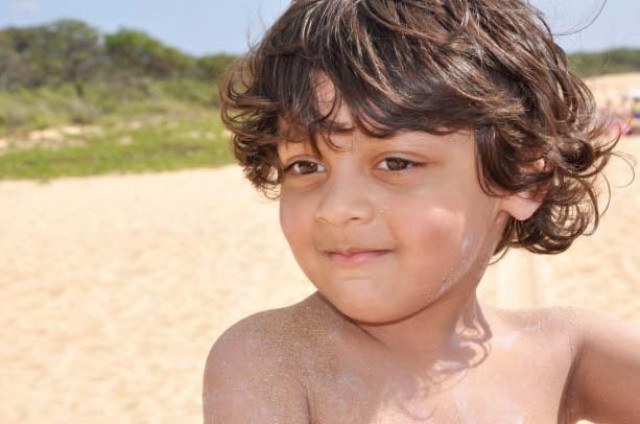Save a life: Clock ticking for 3-year-old in need of stem cell donor
Are you the one? Come and find out at the PC today by giving a cheek swab sample.

The Shers have come all the way to Karachi because people of South Asian genetic backgrounds are underrepresented in the US Bone Marrow Donor Registry. An appeal was launched across the US to encourage South Asian people to take a bone marrow compatibility test. The family was lucky to have hundreds of volunteers get together to organise drives to find a match in different towns and cities across the US and Pakistan.
Rayan, who his uncle Rizwan Sher describes as the perfect “picture of health” prior to the diagnosis, is now in urgent need of a bone marrow transplant. As time is not on their side, doctors are pressuring the family to find a donor as soon as possible.
“Farhan and Sarah (Rayan’s parents) are busy 24/7, taking care of Rayan who has been getting intensive chemo dosage to force him into remission, a pre-requisite for a marrow transplant,” explains uncle Rizwan.
The drive began in Pakistan almost two weeks ago and the team, consisting of Rayan’s relatives and many other volunteers, has carried out drives in Karachi and Lahore. In the US, over 4,000 potential donors signed up.
“We aim to find 6,000 potential donors in Pakistan,” says Farrya Sher, Rayan’s paternal aunt.
Drives have been held in at the homes of relatives and at The Second Floor café. In the two drives held at their Defence residence, the team was able to get 480 potential donors to test for compatibility, says Farrya, adding that the number should have been higher.
The team will also be present at a blood donation camp at the Pearl Continental Hotel on Saturday and plans to hold drives across colleges in Karachi, including Nixor College and Szabist.
The process of testing is fairly simple and painless. It involves taking a cheek swab or a spit sample which is sent back to the US to be analysed for tissue typing in two weeks. Once a match is found, the donor will be required to donate their peripheral stem cells through a process known as Peripheral Blood Stem Cell (PBSC) donation which is a non-surgical procedure involving the extraction of stem cells. The process does not have any long-term side effects and is perfectly safe.
The team has set up a website (CureRayan.org) and an active Facebook page with over 4,000 followers. Drives have been coordinated online and have drawn an overwhelming response from people. In an emotional thank you note to all those who have been helping them, Rayan’s parents wrote:
“And what else gives us hope is when friends and family work selflessly and tirelessly to try to find that one person from millions who will bring the gift of life to our life. When complete strangers send us messages that they want to help and get tested and organise drives and that they have Rayan in their prayers and they want to give cord bloods of their own precious babies, that gives us hope.”
Published in The Express Tribune, February 19th, 2011.



















COMMENTS
Comments are moderated and generally will be posted if they are on-topic and not abusive.
For more information, please see our Comments FAQ